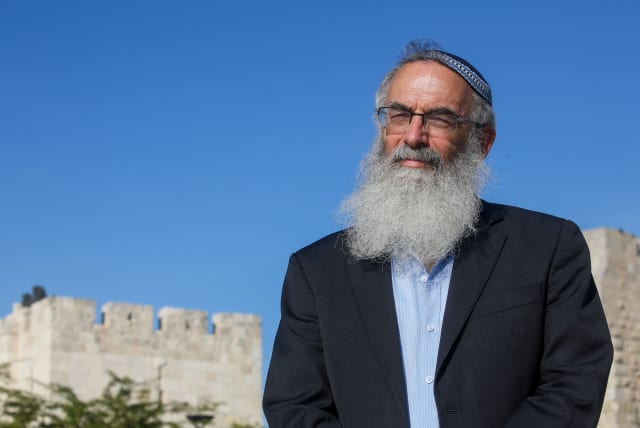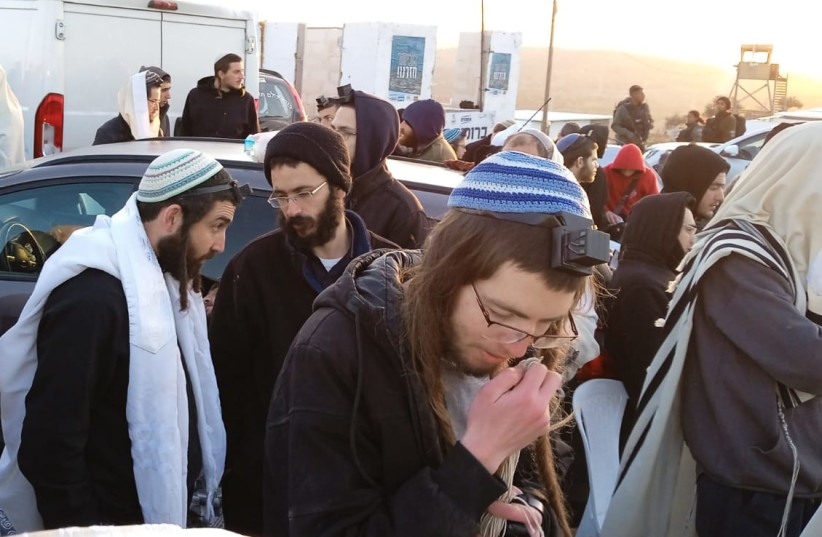Senior religious Zionist Rabbi: Rift in Judaism, Israel is dangerous

In an interview with The Jerusalem Post, Rabbi David Stav stated that Religious Zionism became a cause for separation rather than a bridge "as it used to be."
A leading religious-Zionist rabbi criticized his own community’s leaders for going too far with the judicial reform and causing a rift in the nation.Rabbi David Stav, chairman of the Tzohar organization and the chief rabbi of Shoham, told The Jerusalem Post that it was shocking that “those who were the last to give dialogue a chance were from the religious-Zionist camp.”The members and heads of the religious-Zionist bloc, including Otzma Yehudit chairman and National Security Minister Itamar Ben-Gvir and Religious Zionist Party chairman and Finance Minister Bezalel Smotrich, were against any halting of the judicial reform legislation, even though it led to great instability in the country.
“It is chilling to think what has happened to the religious-Zionist community, from what was considered to be a bridge between religion and Zionism, Torah and avodah [business ventures], Torah and mada [science] and Torah with derech eretz [proper behavior],” he said. “Unfortunately, some of our leaders, elected officials, and rabbis speak in a tone that frightens many people in Israeli society – and rightfully so.”
He explained how “there is a feeling that there are two camps in Israel: the ‘secular, Ashkenazi and democratic’ camp and the ‘traditional, religious, conservative and ultra-Orthodox’ camp.” He said he sees a “great danger and a rift to Judaism and to Israeli society.”Stav emphasized that the problematic rhetoric coming from religious-Zionist leaders isn’t just about the judicial reforms. Bloc members introduced “dozens of laws,” he said, and “the secular people are rightly made to think that in 10-20 years, the ultra-Orthodox will be the majority and will limit their rights.”
However, he said the “forceful and violent” rhetoric from secular Israelis is also a concern, adding that many of his community members – religious Israelis – consult with him regarding wearing their kippah at their workplace because the dialogue has become so toxic.
“I get questions from religious people who are ashamed to go to work with a kippah and women with a head covering,” he said. “Not in the sense of not being religious, but in not being identified as religious; they are ashamed of what the religious community represents nowadays.”
Blaming secular Israelis for violence nationwide
Stav said that Tzohar, the rabbinic organization that he has headed for many years, is promoting many “two-way conversations,” dialogue that is “a journey from the world of our religious communities to bring back the voices of reasoning and of dialogue, not of force. Judaism is a brand that belongs to all of us: It’s not anyone’s personal monopoly.”
He also said that he is against the “Hametz Law,” which enables hospital directors to block hametz from entering hospitals during Passover. It is “a stupid law,” he said, and “will not help any Jew abide by the halachic rules of Passover. It was possible to reach settlements and compromises. After all, no one will enforce this law anyway. It’s an unnecessary law that causes hatred.”
Another initiative that Tzohar has promoted, according to Stav, is dialogue with the heads of the demonstration groups, mainly top figures in the tech community, against the judicial reforms.
“We made a statement that having criticism of a law does not mean that they are against Judaism or want to hurt the feelings of others. In my opinion, to be Jewish and democratic is to respect a holiday even if it is not your faith.”
He added that they will engage in deeper conversations with various rabbis, not necessarily from Tzohar, “to promote a new discourse between us and to understand that the reforms call upon us to create a new Israeli understanding. We must tell a new story of what Israel is.
“I feel that the religious Israelis will have to understand that there are secularists with needs and vice versa.”
As a prominent religious-Zionist rabbi, Stav explained that he and his colleagues are students of the late Rabbi Zvi Yehuda Kook, the son of one of the first chief rabbis of Israel, who was “against religious coercion, except for issues regarding marriage and divorce [according to the Jewish law], because he wanted to keep the nation of Israel whole,” meaning that he insisted that marriage and divorce in Israel should be only allowed through the Chief Rabbinate. According to Stav, the legislation “does not cause rapprochement to religion, since coercion causes harm.”
He added that there is a difference between “the separation of religion and state and the separation of religion from politics,” which he supports. “An absolute majority of Israelis want a Jewish state based on the Declaration of Independence.”
Jerusalem Post Store
`; document.getElementById("linkPremium").innerHTML = cont; var divWithLink = document.getElementById("premium-link"); if (divWithLink !== null && divWithLink !== 'undefined') { divWithLink.style.border = "solid 1px #cb0f3e"; divWithLink.style.textAlign = "center"; divWithLink.style.marginBottom = "15px"; divWithLink.style.marginTop = "15px"; divWithLink.style.width = "100%"; divWithLink.style.backgroundColor = "#122952"; divWithLink.style.color = "#ffffff"; divWithLink.style.lineHeight = "1.5"; } } (function (v, i) { });

